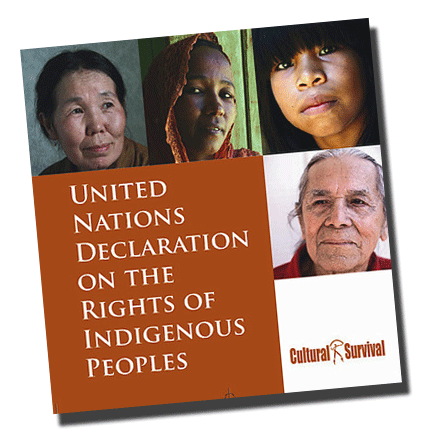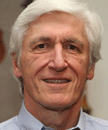 On Wednesday, the United States endorsed the United Nations Declaration on the Rights of Indigenous Peoples.
On Wednesday, the United States endorsed the United Nations Declaration on the Rights of Indigenous Peoples.
It was the last of four “hold-out” countries (Australia, Canada, New Zealand and the U.S.) to endorse the Declaration, originally passed by the UN General Assembly in 2007.
The State Department announced the change in the U.S. position, saying that the Declaration “while not legally binding or a statement of current international law—has both moral and political force.”
Many organizations, national and international, had pushed the Obama administration to endorse the document.
The group Cultural Survival, for example, mounted an online campaign urging supporters to write President Obama about the issue, pointing out that the UN Declaration “marks the first time the United Nations has agreed on a single set of values governing relations between national governments and Indigenous Peoples living within their borders.”
The endorsement is seen as partial fulfillment of a promise made by President Obama in proclaiming November as “National Native American Heritage Month.”
As we celebrate the contributions and heritage of Native Americans during this month, we also recommit to supporting tribal self-determination, security, and prosperity for all Native Americans. While we cannot erase the scourges or broken promises of our past, we will move ahead together in writing a new, brighter chapter in our joint history. [Emphasis added]
Robert T. Coulter, executive director of the Indian Law Resource Center, was one of the primary authors of the Declaration from its inception in 1976. While celebrating the historic victory Wednesday, Coulter reminded Native Americans that with the U.S. endorsement “our work to ensure justice for Indian nations in this country begins in earnest.”
He advised supporters:
In our work for Indian rights, we can and should use the UN Declaration on the Rights of Indigenous Peoples as a powerful affirmation of our rights. Only through continued use will its provisions become our reality. We can use the Declaration to evaluate laws that are now on the books and for laws that may be proposed. Does the law measure up to the standards of the Declaration? Does the law or bill satisfy the requirements of the Declaration? It should. And if it does not, then it should be changed or discarded.
The Declaration can also be used as a guide for procedures and processes in dealing with indigenous peoples. Some of the most important rights in the Declaration are the right to participate in the decision-making process and the right to be consulted on important matters relating to indigenous peoples. The rights proclaimed in the Declaration can also be used to defend against proposals and actions that violate Indian rights. The Declaration can be used in this way by all people: Indian leaders, public officials, educators, and others.
The Declaration can also be used to support and advocate for positive legislation and positive government action relating to Indian peoples. In particular, the Declaration can be used as a basis for making demands that the federal government fulfill its responsibilities to tribes and carry out its obligations to promote and respect the human rights of Indian nations and tribes. Congress needs to hold hearings to examine the United States’ human rights obligations to Indians and to assess whether existing laws and policies adequately respect the rights established in international law.
Here’s the full text of the UN Declaration:
United Nations Declaration on the Rights of Indigenous Peoples -


